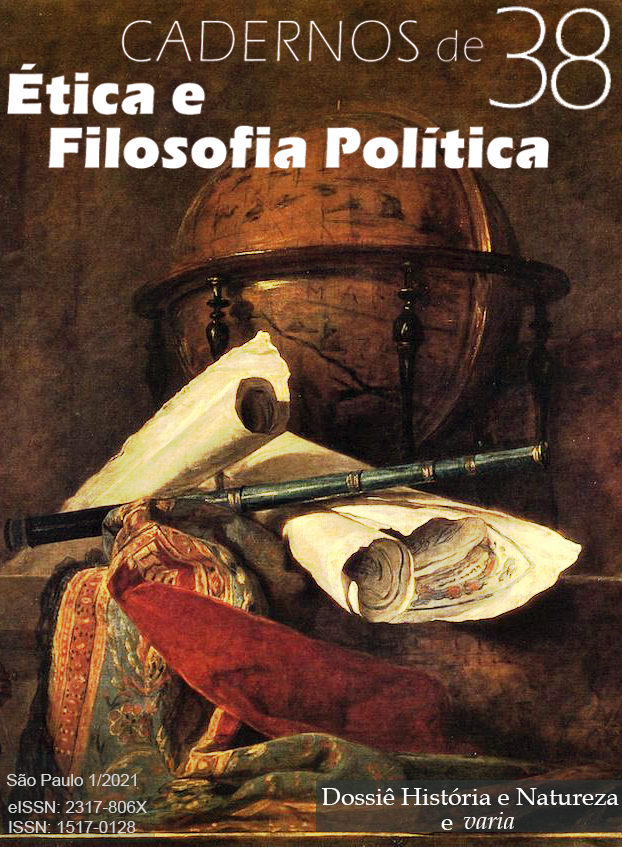Between democracy and truth: Laclau and the populism
DOI:
https://doi.org/10.11606/issn.1517-0128.v1i38p237-245Keywords:
Populism, Democracy, Parresía, DiscourseAbstract
This essay aims to problematize the theory of populism by Ernesto Laclau (1935-2014) in the face of the frequent caricature of the term that ends up reducing it to a kind of generalized threat to the political field. Laclau delimits the democratic terrain in which a non-essentialist construction of the political as populism is inscribed using, for this purpose, rhetorical tools. In this sense, the relation between populism and democracy will be approached in two ways: first, considering the most
recent interpretations by Nadia Urbinati (2019) and Pierre Rosanvallon (2020), and then, based on the concept of “parresía”, present in the two last courses by Michel Foucault at the Collège de France.
Rhetoric appears as a constitutive characteristic of “bad parresía” and, at the same time, as the possibility offered by Laclau of the inscription of the people and the social as coherent objects. In this context, we will try to explain how populism, situated between democracy and truth, can be
considered synonymous with “bad parresía” and what are the reflexes of this characterization in Ernesto Laclau’s theory of populism.
Downloads
References
BANG, Henrik Paul. Foucault’s political challenge: from hegemony to truth. United Kingdom: Palgrave Macmillan, 2015;
BARROS, Sebástian. No todo El mundo puede decir la verdad. Foucault, la parrhesía y El populismo. In: Las Torres de Lucca, nº 11, Julio-Deciembre: 253-284, 2017;
CANDIOTTO, César. Parrhesía filosófica e ação política: Platão e a leitura de Foucault. In: Ver. Filos., Aurora, Curitiba, v. 23, n. 32, p. 31-52, jan/jun, 2011; Frédéric Gros (org.). Foucault: a coragem da verdade. Tradução de Marcos Marcionilo. São Paulo, Parábola Editorial, 2004;
FONSECA, Marcio A. Os paradoxos entre a democracia e o dizer-verdadeiro. In: Rev. Filos., Aurora, Curitiba, v. 23, n. 32, p. 17-30, jan/jun. 2011;
FOUCAULT, Michel. A coragem da verdade: O governo de Si e os Outros II. Curso do Collège de France (1983-1983). Trad. Eduardo Brandão. São Paulo: Martins Fontes, 2011, p. 3-62;
FOUCAULT, Michel. O sujeito e o poder. In: DREYFUS, Hubert L.; RABINOW, Paul. Uma trajetória filosófica: para além do estruturalismo e da hermenêutica. Tradução: Vera Porto Carrera. Rio de Janeiro: Forense Universitária, 1995, p. 231-250;
LACLAU, Ernesto; MOUFFE, Chantal. Hegemonia e Estratégia Socialista: por uma política democrática radical. Brasília: Editora Intermeios, 2015;
LACLAU, Ernesto. A razão populista. Tradução de Carlos Eugênio Marcondes de Moura. São Paulo: Três Estrelas, 2013;
LACLAU, Ernesto. Politics and Ideology in Marxist Theory: capitalism, fascism, populism. London: NLB, 1977;
ROSANVALLON, Pierre. Le siècle Du populisme: histoire, théorie, critique. Paris: Éditions Du Seuil, 2020;
URBINATI, Nadia. Me the People: how populism transforms democracy. Cambridge, Massachusetts: Harvard University Press, 2019.
Downloads
Published
Issue
Section
License
Copyright (c) 2021 Camila Batista

This work is licensed under a Creative Commons Attribution-ShareAlike 4.0 International License.


